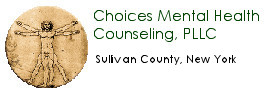Submitted by tomrue on
Cognitive Behavioral Therapy (CBT) has been demonstrated in hundreds of studies to be an effective treatment for a variety of disorders and problems for adults, older adults, children and adolescents. Below is a list of disorders for which CBT is effective for, followed by sources.
ADULTS
Research has shown that CBT is effective for the following disorders, either by itself or in conjunction with medical care:
- Depression
- Geriatric Depression
- Relapse Prevention
- Anxiety
- Generalized Anxiety Disorder
- Geriatric Anxiety
- Panic Disorder
- Agoraphobia and Panic Disorder with Agoraphobia
- Social Anxiety / Social Phobia
- Obsessive-Compulsive Disorder
- Post-Traumatic Stress Disorder (Trauma)
- Withdrawal from Anti-Anxiety Medications
- Dental Phobia
- Bipolar Disorder (in combination with medication)
- Schizophrenia (in combination with medication)
- Dissociative Disorders
- Suicide attempts
- Eating Disorders
- Binge-eating disorder
- Bulimia
- Anorexia
- Body Dysmorphic Disorder (extreme dissatisfaction with body image)
- Somatization Disorder
- Substance Abuse and Dependence (CBT relapse prevention has been shown to be effective)
- Alcohol Abuse or Dependence
- Cocaine Abuse or Dependence
- Opiate Abuse or Dependence
- Smoking Cessation (Group CBT is effective, as well as CBT that has multiple treatment components, in combination with relapse prevention)
- Pathological Gambling (in combination with medication)
- Marital discord
- Anger
- Borderline Personality Disorder
- Attention Deficit Disorder
- Caregiver distress
- Habit disorders
- Seasonal Affective Disorder
Medically related disorders:
- Chronic pain (CBT, in combination with physical therapy, is effective for chronic pain in many medical conditions)
- Chronic back pain
- Non-cardiac chest pain
- Cancer pain, depression, anxiety, and decision-making
- Fatigue and functional impairments among cancer survivors
- Physical complaints not explained by a medical condition (Somatoform disorders)
- Somatization Disorder
- Pain relating to a disease with no known cause (idiopathic pain)
- Hypochondriasis, or the unsubstantiated belief that one has a serious medical condition
- Irritable-bowel syndrome
- Asthma with Coexisting Panic Disorder (in combination with asthma education)
- Rheumatic disease pain (CBT that has multiple treatment components is effective)
- Temporomandibular Disorder pain
- Erectile dysfunction (for reducing sexual anxiety and improving communication)
- Infertility (anovulation)
- Sleep disorders (insomnia)
- Vulvodynia (a chronic pain condition of the vulva)
- Chronic fatigue syndrome
- Pre-menstrual syndrome
- Hypertension (as an adjunct treatment)
- Fibromyalgia
- Colitis
CHILDREN AND YOUTH
Research has shown that CBT is effective for the following disorders and problems:
- Depression or depressive symptoms
- Anxiety disorders
- Separation anxiety
- Avoidant disorder
- Overanxious disorder
- Obsessive-compulsive disorder
- Phobias
- Post-traumatic stress disorder
- Conduct disorder (oppositional defiant disorder)
- Distress due to medical procedures (mainly for cancer)
- Recurrent abdominal pain
- Physical complaints not explained by a medical condition (Somatoform disorders)
- Chronic pain
COGNITIVE BEHAVIORAL THERAPY IS ALSO USED FOR:
- Stress
- Low self-esteem
- Relationship difficulties
- Group therapy
- Family therapy
- Psychiatric Inpatients
- Work problems & procrastination
- Separation and Divorce
- Grief and loss
- Aging
Main Sources:
Butler, A.C., Chapman, J.E., Forman, E.M., & Beck, A.T. (2006). The empirical status of cognitive-behavioral therapy: A review of meta-analyses. Clinical Psychology Review, 26(1), 17-31.
Chambless, D.L., & Ollendick, T. H. (2001). Empirically Supported Psychological Interventions: Controversies and Evidence. Annu. Rev. Psychol, 52, 685-716.
The Beck Institute for Cognitive Therapy and Research, Bala Cynwyd, Pennsylvania, multiple publications.
